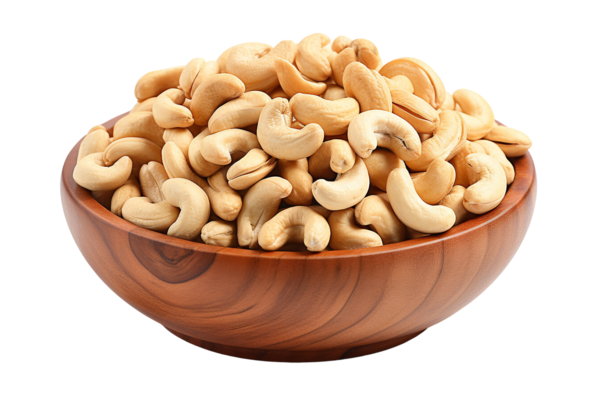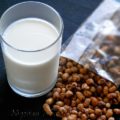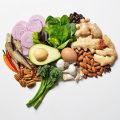In the pursuit of optimal well-being, the connection between nutrition and cognitive function has become an increasingly captivating field of study. Among the myriad of nutrient-rich foods, cashew nuts stand out as a powerhouse for brain health.
Packed with an array of essential nutrients, these kidney-shaped delights have garnered attention for their potential cognitive benefits. This article delves into the multifaceted advantages of incorporating cashew nuts into your diet and their positive impact on cognitive function.
Nutrient-Rich Profile of Cashew Nuts
To comprehend the brain-boosting potential of cashew nuts, it is crucial to first unravel the nutritional treasure trove they offer. Cashews are replete with nutrients such as vitamins, minerals, and antioxidants, making them a wholesome addition to one’s diet. A comprehensive examination of their nutritional content reveals the presence of vital elements, including magnesium, phosphorus, copper, and healthy fats.
- Magnesium: A Key Player in Cognitive Function: Cashew nuts are an excellent source of magnesium, a mineral vital for various physiological functions, including nerve transmission and muscle contraction. Research suggests that an adequate magnesium intake is associated with enhanced cognitive performance, making cashews a valuable dietary ally for maintaining optimal brain function.
- Phosphorus and Cognitive Support: Phosphorus, another essential mineral found abundantly in cashew nuts, plays a crucial role in the formation and maintenance of healthy brain tissue. It is a key component of cell membranes and neurotransmitters, contributing to overall cognitive function.
- Copper: A Trace Element with Cognitive Significance: The presence of copper in cashew nuts is noteworthy, as this trace element is involved in the synthesis of neurotransmitters, the chemical messengers that facilitate communication between nerve cells. Copper’s role in brain health underlines the potential cognitive benefits of incorporating cashews into one’s diet.
- Healthy Fats: Nourishing the Brain: Cashew nuts contain a moderate amount of healthy fats, including monounsaturated and polyunsaturated fats. These fats are integral for brain health, as they contribute to the structure of cell membranes and support the efficient transmission of nerve signals. The balance of these fats in cashews aligns with dietary recommendations for promoting cognitive well-being.
Antioxidants Effect
Guardians of Cognitive Health: In the realm of brain health, the role of antioxidants cannot be overstated. Cashew nuts boast a repertoire of antioxidants, including vitamin E and various phytochemicals, which help combat oxidative stress. Oxidative stress, resulting from an imbalance between free radicals and antioxidants, has been implicated in age-related cognitive decline and neurodegenerative disorders. The antioxidant-rich profile of cashews positions them as defenders against the ravages of oxidative stress, potentially preserving cognitive function.
Mood Enhancement and Stress Reduction
Beyond the realm of physical health, the impact of cashew nuts on mental well-being is a captivating aspect. These nuts contain amino acids such as tryptophan, which serve as precursors to serotonin – a neurotransmitter often referred to as the “feel-good” hormone. Serotonin plays a pivotal role in regulating mood, and a balanced level is associated with feelings of happiness and well-being. Additionally, cashew nuts contain magnesium, known for its stress-reducing properties, further contributing to a positive impact on mental health.
Brain-Boosting Nutrients
Delving deeper into the specific nutrients found in cashew nuts that contribute to cognitive enhancement, it is essential to explore their role in neurotransmitter synthesis and overall brain function.
- Tyrosine: A Precursor to Neurotransmitters: Cashew nuts contain the amino acid tyrosine, a precursor to neurotransmitters such as dopamine and norepinephrine. These neurotransmitters are crucial for cognitive processes, including attention, motivation, and mood regulation. The presence of tyrosine in cashews suggests a potential role in supporting these cognitive functions.
- Omega-3 Fatty Acids: Brain’s Building Blocks: While not as rich in omega-3 fatty acids as some other nuts, cashews still contribute to the overall intake of these essential fatty acids. Omega-3s are fundamental components of the brain’s structure and play a vital role in cognitive function. The incorporation of cashew nuts into a balanced diet can thus contribute to the maintenance of optimal omega-3 levels for brain health.
Weight Management and Cognitive Benefits
The relationship between weight management and cognitive function is a subject of growing interest. Cashew nuts, despite being energy-dense, can be a valuable addition to a weight-conscious diet due to their nutrient density. The combination of healthy fats, protein, and fiber in cashews can promote satiety and contribute to weight management, potentially influencing cognitive function indirectly. Maintaining a healthy weight is linked to a lower risk of conditions such as diabetes and cardiovascular disease, which can have detrimental effects on cognitive health.
Incorporating Cashew Nuts into a Brain-Boosting Diet
Understanding the benefits of cashew nuts for brain health is incomplete without practical insights into their integration into daily dietary habits. Here, we explore creative and nutritious ways to incorporate cashews into a brain-boosting diet.
Snacking Smartly
Cashews make for an ideal snack, providing a satisfying crunch and a nutrient-packed punch. Create your own trail mix by combining cashews with other brain-boosting nuts and seeds like walnuts, almonds, and flaxseeds. This snack not only tantalizes the taste buds but also nourishes the brain with a diverse range of nutrients.
Culinary Creativity
Cashews are versatile and can be incorporated into a variety of dishes, adding both texture and flavor. From stir-fries to salads and curries, the creamy texture of cashews can elevate the culinary experience while contributing to brain health. Cashew butter or cashew cream can also be used as healthier alternatives in recipes, providing a nutrient-rich twist to familiar dishes.
Breakfast Brilliance
Start your day with a brain-boosting breakfast by adding cashews to your morning routine. Sprinkle chopped cashews on top of oatmeal, yogurt, or cereal to enhance both the nutritional content and the sensory experience of your breakfast.
Considerations and Precautions
While the benefits of cashew nuts for brain health are compelling, it is essential to approach dietary choices with consideration for individual health conditions and needs. Moderation is key, especially for individuals with nut allergies, and consulting with a healthcare professional or nutritionist is advisable before making significant changes to one’s diet especially if you are pregnant.
Future Directions in Research
As the scientific community delves deeper into the interplay between nutrition and cognitive health, ongoing and future research may uncover additional facets of the benefits associated with cashew nuts. The exploration of specific bioactive compounds, potential synergies with other brain-boosting foods, and a deeper understanding of the mechanisms underlying the observed effects can pave the way for more targeted dietary recommendations.
Addressing Common Misconceptions
While extolling the virtues of cashew nuts, it’s important to dispel common misconceptions. Some individuals might be wary of including cashews in their diet due to concerns about their calorie content. However, it’s crucial to recognize that the energy density of cashews is balanced by their nutrient richness. When consumed in moderation as part of a well-rounded diet, the benefits far outweigh any concerns related to calorie content.
Tailoring Dietary Approaches
Individual responses to dietary changes can vary, and what works well for one person may not be as effective for another. Personalizing dietary approaches, taking into account factors such as age, genetics, and existing health conditions, is essential. Cashew nuts can be integrated into a brain-boosting diet, but the overall dietary pattern, including a variety of nutrient-dense foods, plays a pivotal role in supporting cognitive health.
The Holistic Approach to Brain Health
While cashew nuts offer substantial benefits for brain health, it’s crucial to recognize that they are just one piece of the puzzle. A holistic approach to brain health encompasses various lifestyle factors, including regular physical activity, sufficient sleep, stress management, and social engagement. Combining a brain-boosting diet with these lifestyle elements creates a comprehensive strategy for promoting cognitive function and long-term brain health.
Challenges and Considerations
Despite the promising benefits, challenges may arise in promoting the widespread adoption of cashew nuts for brain health. Economic factors, dietary preferences, and cultural considerations can influence the accessibility and acceptance of certain foods. Therefore, efforts to promote awareness, provide education, and encourage the integration of brain-boosting foods, including cashew nuts, should be tailored to diverse populations.
Recipes for Brain-Boosting Delights
To inspire readers to incorporate cashew nuts into their diets, here are two delicious and brain-boosting recipes:
Cashew and Berry Smoothie Bowl: Ingredients:
- 1 cup frozen mixed berries
- 1 ripe banana
- 1/2 cup Greek yogurt
- 1/4 cup cashews, chopped
- 1 tablespoon chia seeds
- 1 tablespoon honey (optional)
Instructions:
- Blend the frozen berries, banana, and Greek yogurt until smooth.
- Pour the smoothie into a bowl.
- Top with chopped cashews, chia seeds, and a drizzle of honey.
- Enjoy this nutrient-packed and visually appealing breakfast or snack.
Thai-Inspired Cashew Chicken Stir-Fry:
Ingredients:
- 1 lb boneless, skinless chicken breast, sliced
- 1 cup broccoli florets
- 1 bell pepper, sliced
- 1/2 cup snap peas
- 1/2 cup cashews
- 2 cloves garlic, minced
- 2 tablespoons soy sauce
- 1 tablespoon oyster sauce
- 1 tablespoon sesame oil
- Cooked brown rice for serving
Instructions:
- In a wok or large pan, heat sesame oil over medium-high heat.
- Add sliced chicken and minced garlic, cooking until chicken is browned.
- Add broccoli, bell pepper, and snap peas, stir-frying until vegetables are tender-crisp.
- Stir in soy sauce and oyster sauce, mixing well.
- Add cashews and cook for an additional 2-3 minutes.
- Serve overcooked brown rice for a flavorful and brain-boosting meal.
In the intricate dance between nutrition and cognitive health, cashew nuts take center stage as a versatile and delectable partner on the journey to optimal well-being. Their nutrient-rich profile, combined with antioxidant properties and brain-boosting elements, positions them as a valuable addition to a holistic approach to brain health. As we continue to unravel the complexities of the mind-body connection, the role of cashew nuts in promoting cognitive function stands as a testament to the profound impact that mindful dietary choices can have on our mental well-being. Embrace the delightful crunch of cashews and savor the multifaceted benefits they offer for a brain that thrives in harmony with nature’s bounty.





